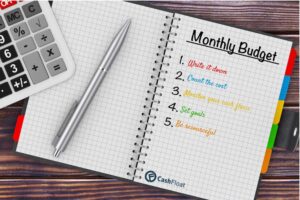How to Build an Emergency Fund on a Tight Budget

Introduction
Today we discuss Emergency Fund on a Tight Budget. An emergency fund is basically, an insurance mechanism that guard an individual financially. It may be a medical emergency or car breakdown or job loss, but with a fund in place, one is stress-free.
It may seem as if it is not very significant but it is one of the most significant steps to building financial security – the establishment of an emergency fund. This article will explain how to start your emergency fund and how to take care of it, even if you have little money to spare, so that you can be ready for anything.
Seven Reasons Why an Emergency Fund is Important
Emergency fund is the amount of money which is kept for unexpected expenses such as a medical bill, car break down, or unemployment. Without it you may use credit cards or loans which in one way may compel one to get into a lot of debts.
An emergency fund means that you do not lose any sleep or stressing during such a time because you have your basics needs catered for financially. It is advised to save at least the money for three to six months of your life for unpredictable events, let you become safe from unexpected situations.
Assessing Your Current Financial Situation: A Starting Point
Before starting to build an emergency fund you need to evaluate your position. Make a balance of your income and your expenditure to find out how much of your salary you can save. Expenditure should be listed in the necessary and unnecessary categories to know where effective changes can be made. Managing one’s finances will help you get an insight on the strengths and weaknesses to enable a shift. This step is important to ensure you set up a realistic plan on how many savings you are willing to make with regards to your plans.
Goal setting for the creation of an emergency fund
Understanding What is Needed to Create an Emergency Fund It is crucial to have a clear and realistic vision of what this money should safely be available for in case of an emergency. Make a goal small, for instance, to save $1000 and increase it progressively up to a three to six months’ worth.
This is a very good point – divide the major goal into sub-goals so that you can comfortably work towards reaching them. Apart from keeping you committed, it also makes the process bearable. Just remember that, this is about building safety net and it may not be built overnight; but it will be better and stronger if it is developed consistently.
How to Save on a Tight Budget: Practical Tips
Those who attempt to save money while surviving from paycheck to paycheck know that frugality comes with ingenuity and a lot of perseverance. The guidelines are simple; begin by identifying necessities and saving anything, even one penny weekly. Avoid spending using cash-back apps, coupons or discount.
Planning on buying something that is not so needed and not on the list created should be discouraged by ensuring that no buying is done without a list. Those minor shifts like cooking instead of going out or opting for the bus instead of a cab will go along way into saving small amounts of money that will all add up and help you grow your emergency fund.
How to Trim the Fat in a Household Without Even Noticing
Cut down expenses as if they are not necessary expenses and always look forward to the unnecessary expenses. Eliminate extra services, haggle for many services such as electricity consumption, and patronize cheap or cheap-to-free events.
Avoid buying branded products for foods and other household items in order to reduce our cost. These slight changes enable you to live life to the fullest whilst also making savings towards your emergency fund. The idea is to get just enough money so that you can support yourself and still live the kind of life you want.
In order to augment the rates of personal savings, people must search for extra sources of income
There is nothing better in life than making more money to help you save faster. Walk a multicultural man or woman in the street with ideas of doing freelance work, tutoring or even selling items online. You can sell your skills on different platforms like Fiverr or even an Etsy.
Other work options include work for some of the hours during the day or in positions that can be found at companies using the gig economy, for instance, food delivery. Since the earnings generated will be utilized solely for your emergency fund you’re certain it won’t dAw interfere with you primary source of income until you reach your monetary targets.
The Importance of Automating Your Savings Contributions
This is because your savings are on an automatic base and generally there is no way you can be tempted to spend on them. Open a savings account and have direct deposits taken right from your paycheck or checking account. This pay yourself first is especially useful in ensuring that you have put aside the amount of money you intend to save before you can spend on other items.
And as the automation progresses, discipline is created, and saving becomes something that requires little to no effort, your emergency fund therefore will definitely grow even without your monitoring.
The use of tracking systems for especially activity 2C and tips on how to stay motivated
Always check how you are doing and this will help to motivate you to work harder. There are simple budgeting apps, or you can use a spreadsheet to create a sheet with the savings milestones you set. Make sure you set short-term targets which are within easy reach, making sure you make some gains as you compound your capital, such as hitting your first $500 or $1,000.
Another way is to make use of the temptation such as having a s aving chart where you are constantly able to see the end of your goal. When you keep positives and recognize achievements the process becomes enjoyable and you are encouraged to continue.
Conquering the Main Obstacles in Creating an Emergency Fund
Creating an emergency fund has its trials, for instance; emergencies arise while saving, one may suffer losses or experience changes in wages. To avoid these, keep yourself open and change your saving strategy as you wish. Do not get discouraged by failures and failures and instead focus the big picture.
To ensure that you work towards saving money one can involve friends, family or financial advisors who will be held responsible. Just think, every day you are moving closer to your goal of financial freedom and each saved $1 is one step closer.
How to Use Your Emergency Fund Wisely During a Crisis
You should spend money saved in an emergency fund in cases of necessity such as illness, loss of a job or a breakdown of your car or house. Do not tap into it for anything other than important utilities or emergencies and such in life. When there is a financial crisis, make sensible assessments and pay for mandatory spending such as rent, utilities and food. Applying your money correctly helps to afford it at challenging moments in life and to achieve its main goal – protection from financial instability.
Conclusion
Emergence fund on the people’s financial security and confidence level in critical situations. This approach should be realistic, save money as frequently as possible and make the right monetary decisions to put apart cash that acts as a cushion for any a sudden incidence. The best approach is to begin with a small budget,quirrelly and remain loyal to your strategy. That will give you a good financial future which is provided regardless of what life makes you face or meet.







